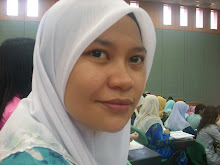A wise person once said, " We see the world not as it is, but as we are". Our thoughts about the world and our views about how things work in life are very core of what we are about. Like our attitudes, these basics beliefs shape us and are reflected in the way we respond to everything. As teachers, what we truly believe about students,learning and the entire process of teaching comes through with each assignment we make, every lesson we prepare and every interaction we have with students, parents and peers.
Clearly, every individual has their own unique take on the world, and the philosophical underpinnings we each have are the results of our own experience s and backgrounds. Our particular approaches to the world naturally affect our teaching, just as they would affect any profession we chose. Understanding our own philosophical orientations as well as the philosophical orientations of those around us who think differently help us to see other point of view in situations. In education, this is necessity.
You are invited to know more about my philosophy as a teacher.
My Philosophical Approach: What do I believe About students and Teaching
There are really four basic schools of thoughts that represent the predominant philosophical approaches to teaching today. My philosophical approach is Educational Humanism/ Progressivism.
It is totally child centered. Educational humanist believe that teaching should promote self actualization and individualization. Using method of instruction that provide maximum freedom for self-initiated, self-directed learning. As a teacher, I become a facilitator of learning and students only learn by doing. It is more to social movement. The true purpose of education is the development of the human being. Their emphasis on hands-on methodology and as a teacher, I must guide my students.
As a teacher and instructor , I need to have my own teaching philosophy towards my career as a chemistry teacher. In my opinion, the first goal in teaching chemistry is to have a solid curriculum and provide the students with the framework of knowledge. The understanding of chemistry concepts and the ability to solve various chemistry problems should be emphasized. Students need to be helped and encouraged in developing their own problem-solving abilities and styles, and the teacher should show students that there may be more than one way to approach a problem whenever it is possible.
As many teachers realized, one of the most challenging things in teaching is that the teacher is always faced with a group of students with very different backgrounds and abilities, so the teacher has to try to help those with the poorest background and the least knowledge, without completely boring and discouraging those students who have a very good background. I believe that teachers need to begin a course by starting everyone on the same page and then providing a common intellectual space for student to develop from there.
I strongly believe in cooperative learning. Teachers need to establish some protocols necessary to let the students develop ideas/concepts via e.g. prior assigned readings, classroom arguments and discussions, and after classroom experiments. This kind of interactive lecturing allows both students and the teacher to ask questions, and builds enormous confidence in the students about their ability to create original ideas.
In recent years, skills like computer literacy and the ability to use the internet are prerequisites for success. I believe that transfer of knowledge can be achieved efficiency using modern computer tools and with other audio-visual aids as well. Students should be assigned computer work to learn how to use some of computer programs to solve chemistry problems, to write papers and to give oral presentations, whenever appropriate.
Eventually, the goal of education is learning rather than teaching. I believe that students should be inspired to think on their own, and that a good and healthy relationship between the teacher and students could motivate students’ potential learning abilities. A teacher should treat students equally with respect, whatever their educational and cultural background.
Teaching, is after all, the easy part which requires a straight forward process of transferring knowledge from teacher to students. Or so it seems. All it requires is to have the content to be taught ( the lecture or note book) and the media or platform to transfer it to the student which is delivering a lecture with transparencies or with chalk and board. The students merely listen. This is what we call as 'learning by telling'. Interaction is not encouraged during lectures and questions from the floor are rare and not integral to the lecture. To help the students, notes are printed for distribution but the students nevertheless take copious notes during the lecture rather than focus on the teacher's monologue. As the teacher advances in our career, we will have even less time and incentive to explore more effective means of teaching and learning. We reads only to advance our area of specialisation.

